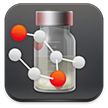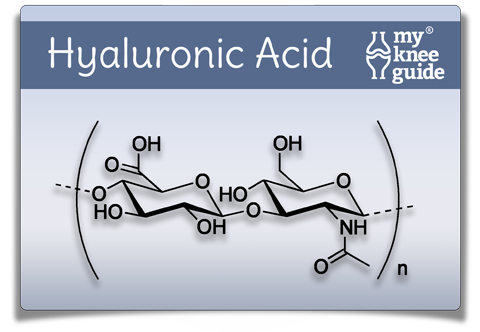
One method used to treat knee arthritisknee arthritis is visco-supplementation injections with hyaluronic acid. This is a natural substance found in the synovial (joint) fluid that surrounds a healthy knee. Hyaluronic acid, provides a liquid cushion and lubricates the kneeknee. It works as a shock absorber during high shear forces and as a lubricant during slow movement.
It is also believed that there is a protective effect provided by hyaluronic acid on the cartilage of the knee in addition to providing an anti-inflammatory component. Hyaluronic acid is formed by the linking of thousands of repeating molecules. As knee arthritis progresses, the body produces less hyaluronic acid within the joint, thus the knee loses some of the protective benefits of this substance.


In 1997, the United States approved the use of an injectable form of hyaluronic acid for the treatment of knee arthritis. These injections are generally safe and complications such as knee swelling or pain are unusual. There are several makers of Hyaluronic acid injections such as Euflexxa® Euflexxa®, Synvisc® Synvisc®, and Hyalgan® Hyalgan®. Depending on the brand, the regimen may be a onetime single dose, or distributed as an injection given weekly for 3 or 5 weeks.
Currently, the injectable form of the substance is derived from a preparation utilizing a rooster comb or is synthesized from bacterial fermentation. There are several names that these injections can be referred to as:
- Visco-supplemention
- Rooster Comb Injections
- The Gel
- Hyaluran or Hyaluronic Acid
- The Lubricant
When used as a weekly injection, the patient may feel some relief after the first dose, but full relief will not be expected until the series is completed. Typically, between 50% and 75% of patients may gain some relief from these injections. The amount of pain relief gained also varies from patient to patient. These injections are most effective in patients who have mild or moderate osteoarthritis, and are less effective in patients with severe arthritis.
The efficacy of these injections has created some controversy. There was a scientific review of hyaluronic acid injections published in August of 2012 combining multiple different studies to include over 12,600 patients. The conclusion of this study reported that hyaluronic acid injections may only be a small benefit, which may not be clinically relevant.11 These results have lead some insurance companies (such as Blue Cross/Blue Shield of Florida) to no longer provide financial coverage for these injections. However, these conclusions are not universally agreed upon, as the careful examination of the most recently published articles suggests that visco-supplementation is a safe option with a clinically important reduction in pain for younger patients with knee osteoarthritis.22
Most insurance companies, including Medicare, require that a patient fails conservative measures conservative measures for three months prior to allowing a physician to administer visco-supplementation. If approved, then the patient may be able to repeat these injections every 6 months. It is not fully known if repeated series of injections will cause problems with the knee joint over time. However, repeated injections of hyaluronic acid may have less of a chance of causing cartilage damage as can be seen with multiple steroid injectionssteroid injections.














